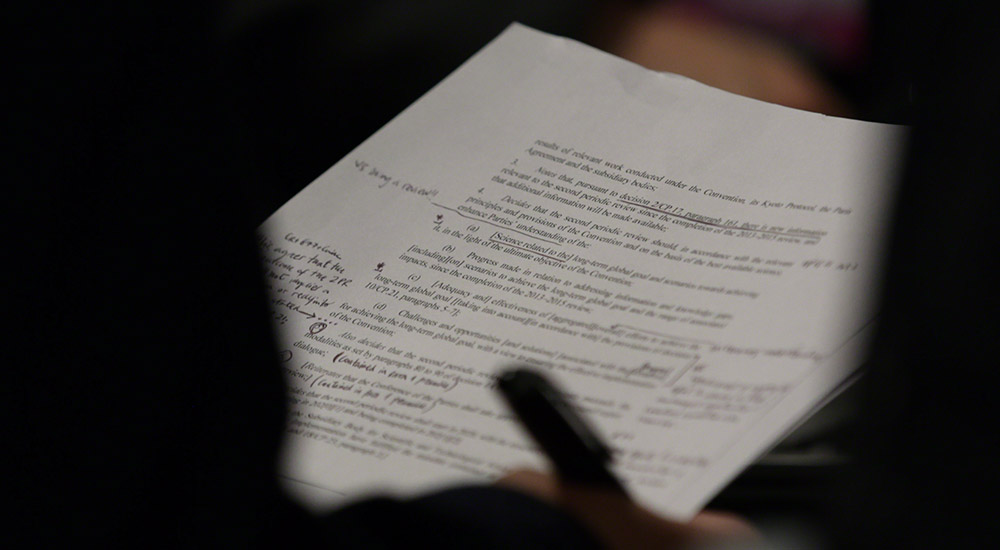New paper makes sense of Article 6 – what’s at stake?

This new working paper from the World Resources Institute (WRI) provides an overview of the key remaining issues being negotiated under Article 6 of the Paris Agreement.
Article 6 of the Paris Agreement provides the rules for international cooperation and carbon markets. It’s the final outstanding piece of the Paris rulebook, the rest of which was finalised in 2018.
Rules related to Article 6 will have a significant impact on the ways in which countries achieve their climate commitments and emissions reductions. Article 6 calls for strong rules to ensure that countries avoid double-counting and preserve environmental integrity.
With strong rules, Article 6 could support higher ambition in mitigation and adaptation action. With weak rules Article 6 could weaken the very foundations of the Paris Agreement, in light of the number of countries intending to use carbon markets in their nationally determined contributions (NDCs).
This WRI working paper provides an overview of the key remaining issues being negotiated under Article 6. The paper explains each issue, what Parties disagree on, and what is at stake. The authors find that the way countries resolve each of the remaining issues will have important implications that affect the long-term effectiveness of the Paris Agreement, and emissions reductions goals. These issues include: double-counting; additionality; delivering increased ambition and progression; and financing for Article 6 activities and adaptation.
The key issues discussed in WRI’s briefing still remain unresolved after Madrid: whether to carry over emissions credits from the Kyoto Agreement into the Paris Agreement; how to avoid double-counting of emissions credits; how to achieve ‘overall mitigation in global emissions’ and thus environmental integrity, share of proceeds, governance and monitoring.
These remain live negotiating issues for the year ahead and critical to resolve by the next COP. Indeed, Article 6 looks like a top priority for the COP26 presidency.
Read the full paper: Making Sense of Article 6: Key Issues and What’s at Stake
Find more resources on market-based mechanisms in the UNFCCC.
Photo: Kiara Worth/IISD